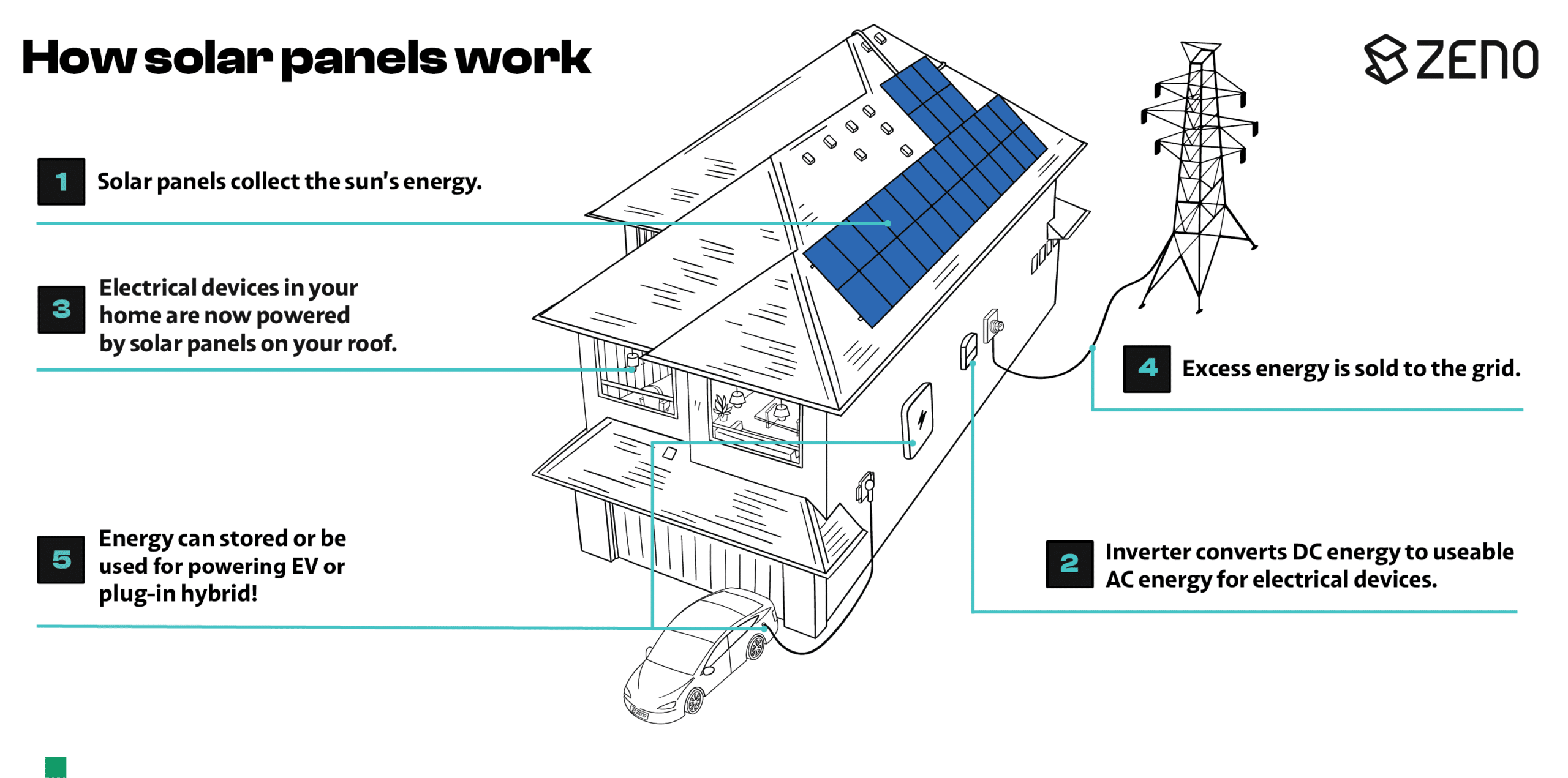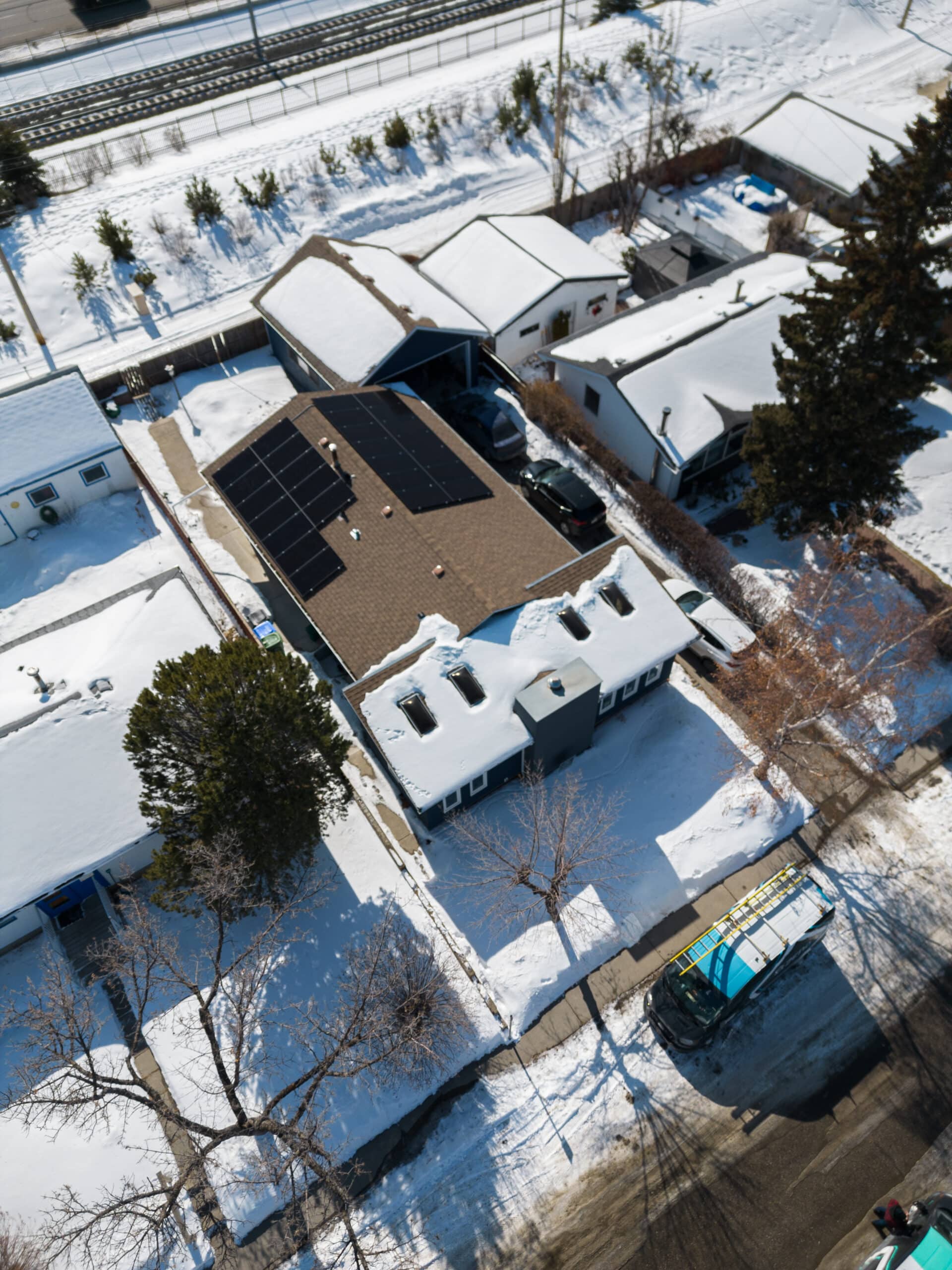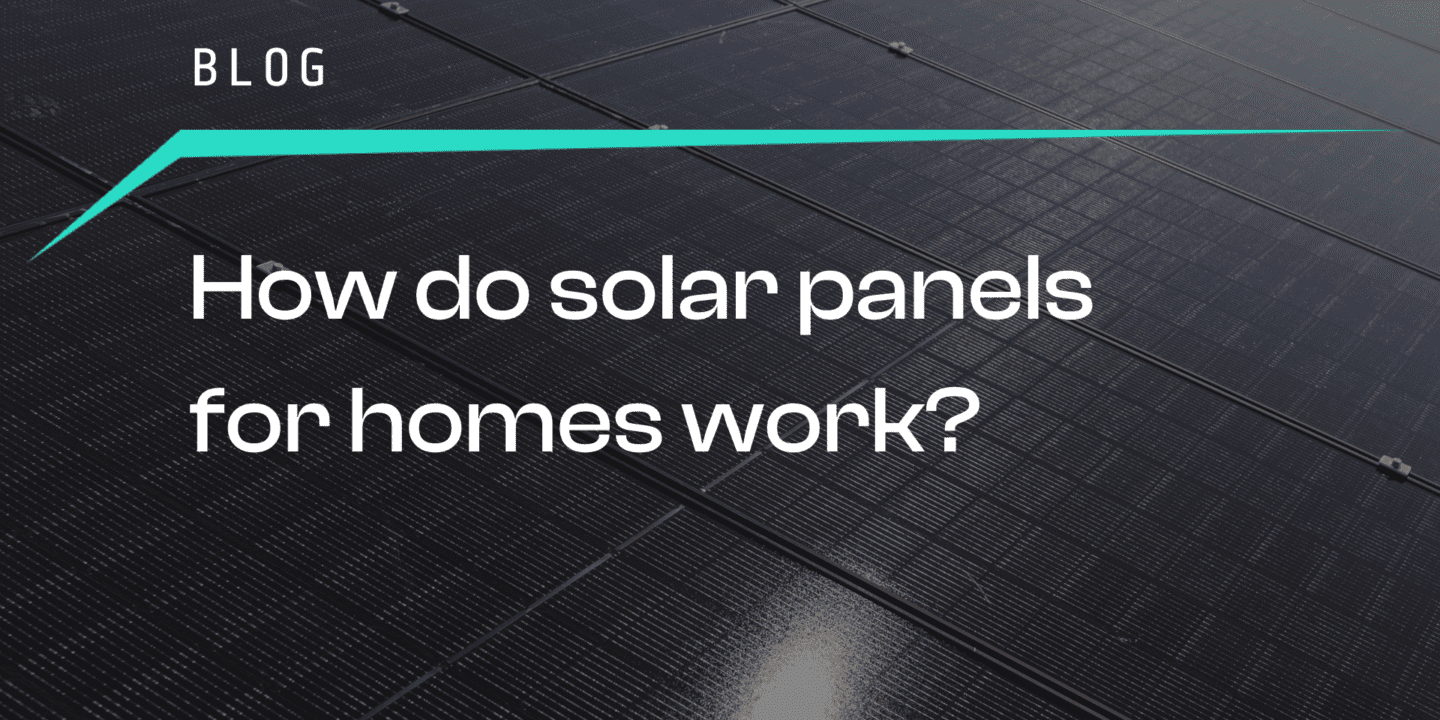How do solar panels work?
So, what is solar energy and how do solar panels work check out this article.
With a remarkable 25.9% growth in solar usage in 2022, it’s clear that Canada is making great strides in going green.
This growth can be attributed to a few things, including the effectiveness of solar panel systems, the long-term affordability of renewable energy, and increased awareness about the environmental benefits of going solar.
While solar energy is quickly becoming a popular energy choice among home and business owners, our most frequently asked question remains the same:
Understanding Solar Energy

To understand how solar panels work, we need to understand solar energy.
Solar panels derive their energy from sunlight, or to be more specific, from solar radiation.
Solar radiation is the technical term for the energy that the sun emits. It comes in various forms, including infrared radiation, ultraviolet radiation, X-rays, gamma rays, and visible light, which we see every day.
Nuclear fusion reactions in the sun create photons, tiny particles of light that make up this energy.
Ways to Capture Solar Energy
While solar radiation is very powerful, it can’t directly power up homes and businesses. To transform solar radiation into solar energy, we use different methods and technologies, such as:
Photovoltaic (PV) cells are used to capture solar energy. Out of all solar-capturing technology, these are the most commonly used. They are found in solar panels.
Concentrated solar power (CSP) technology uses mirrors or lenses to concentrate sunlight onto a small area. The concentrated sunlight heats a fluid, creating steam that powers a turbine and generates electricity.
Solar architecture involves designing a building in a way that effectively utilizes the sun’s natural heat and light.
Have another question about how solar panels work? We’re happy to help!
How Do Solar Panels Work and Convert Sunlight Into Electricity?
Solar panels generate electricity through the photovoltaic effect.
This phenomenon was discovered by Edmond Becquerel in 1839.
As the theory goes, when exposed to sunlight, certain materials (known as semiconductors) — such as silicon — begin to produce electric currents.
Silicon is a nonmetal semiconductor that can help generate an electric current. That’s why solar panels consist of silicon solar cells, also known as photovoltaic (PV) cells.
So, how do solar panels work?
In a nutshell: when exposed to sunlight, the silicon solar cells within each solar panel start producing electricity. More solar panels generate more energy.
Now, let’s take a closer look at how solar panels work, step by step.
Furthermore, we’ll need to get a little bit technical here.
The photovoltaic effect takes place like so:
- When sunlight, or photons, hit a solar panel, the solar cells absorb the photons.
- Knocking free electrons from the atoms causes them to move and flow through the cell.
- The metal plates and wires in the solar panels capture this flow and turn it into direct current (DC) electricity.
- DC electricity flows into an inverter, which transforms it into alternate current (AC) electricity — the kind that runs through most homes and businesses.
- The house runs AC electricity or stores it in a battery for later use.

Common Questions About How Solar Panels Work
Do solar panels work in winter? — Yes, but they might produce less energy relative to what they would produce in the summer. As there are fewer hours of daylight and the sun is lower in the sky, the solar panels might not capture as much energy as they do in sunnier seasons.
It’s important to note that completely covering solar panels with snow renders them ineffective. However, when designing your system, Zeno will factor in such losses and make up for them where feasible.
How do solar panels work on cloudy days? — Yes, a solar panel works even on cloudy days, as reflected sunlight will still be absorbed. Solar panels can work properly even without direct sunlight, though they perform better with it.
Do solar panels work at night? — No, your solar energy system will only work during the day. Sunlight is the key to solar panels generating electricity.
Do solar panels work in the shade? — In partial shade, solar panels may still work. However, it isn’t advisable to place solar panels where there is shade from trees or buildings, as this can tamper with the amount of sunlight that the panel receives.
At Zeno, we’ll assess your property and design your solar panel system economically to maximize sunlight in your space.
Take the First Step to a Sustainable Future with Zeno
At Zeno, we aim to make going solar easier.
How do we do this? By offering tailored energy solutions that will reduce your carbon footprint and help save you money on energy bills.
Using innovative technology, our team of passionate designers, engineers, and certified electricians can create a comprehensive solar solution for your home.
Reaping the benefits of solar energy has never been easier.If you’re interested in taking the first step towards a more sustainable future, contact us today to schedule a free solar assessment for your property.
